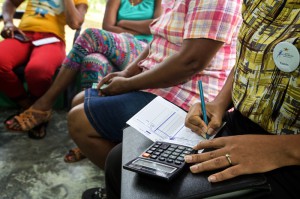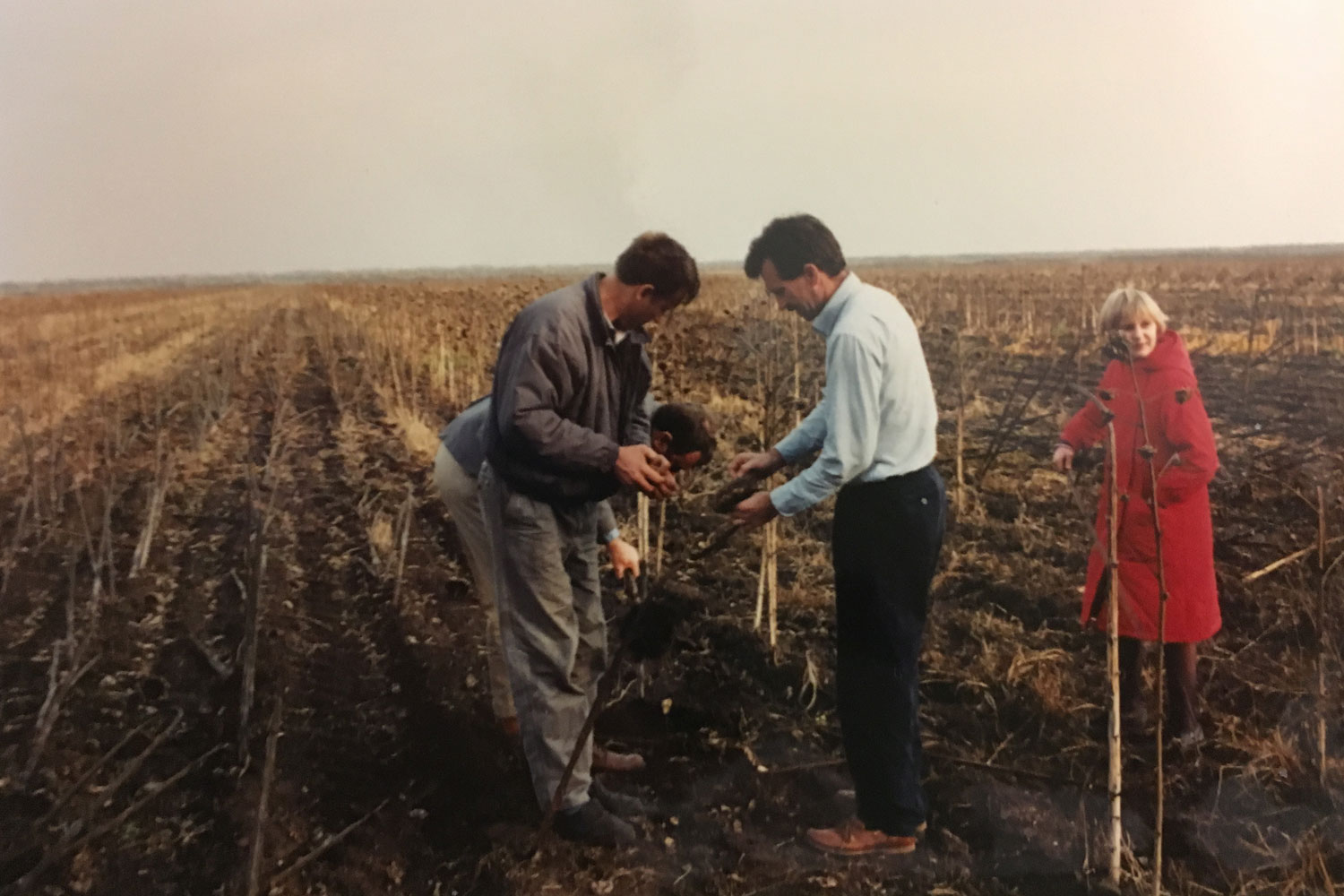Each year, HOPE celebrates clients who demonstrate HOPE’s values of perseverance, compassion, character, and creativity by announcing the Thurman Award. Established in honor of HOPE’s first CEO, the Thurman Award celebrates clients who have not only experienced change in their own lives but have also extended that transformation to others in their community. We’re […]
Continue Reading...HOPE Intl
By HOPE Intl
Microfinance News Photos / Media Stories we loveHOPE Intl
HOPE Intl
Stories we loveHOPE Intl
HOPE Intl
Microfinance Staff / Travelsby Annie Rose Ansley, HOPE Trips Liaison
This blog post was originally posted on Esperanza International’s blog.
I like to be independent. I like to accomplish and improve things without relying on or waiting for anyone else. Anyone with me?
 Yet here in the Dominican Republic, microfinance groups with HOPE’s partner, Esperanza International, are opening my eyes to the beauty and paradoxical freedom of dependence. Forming a group is the first requirement to taking out a small loan with Esperanza. If an individual cannot repay their loan for any reason, the responsibility lands with the group. This system may sound scary, but it works. Social collateral—neighbors and friends—can be a very powerful guarantee. Members of solidarity groups live in small, close-knit communities, which positively influence each member to repay.
Yet here in the Dominican Republic, microfinance groups with HOPE’s partner, Esperanza International, are opening my eyes to the beauty and paradoxical freedom of dependence. Forming a group is the first requirement to taking out a small loan with Esperanza. If an individual cannot repay their loan for any reason, the responsibility lands with the group. This system may sound scary, but it works. Social collateral—neighbors and friends—can be a very powerful guarantee. Members of solidarity groups live in small, close-knit communities, which positively influence each member to repay.
But, of course, there are times when someone is unable to pay back. I have been at many meetings where one client readily covers the meeting’s loan payment for another. Likewise, I have seen these advances repaid time and again. These examples of community dependence are a slice of humble pie for my spirit of skepticism and self-reliance. Continue Reading…
by David Fuller, Spiritual Integration Fellow
An important theological concept that undergirds our work at HOPE International is Missio Dei, a Latin term meaning, “Mission of God.” It is the basic idea that God has a purpose and goal for His whole creation.
We read about God’s mission in the first three chapters of Genesis. God said, “No!” to nothingness and “Yes!” to relationship with His creation. After our Fall from His created intent, God’s mission took a redemptive turn. In Genesis 3:9, God’s mission is articulated when He calls out, “Adam, where are you?” Despite Adam and Eve’s sin then and our own sin today, God is pursuing us, calling out, “Where are you?” Continue Reading…
by Jeff Rutt, Founder & Board Chair of HOPE International, Founder & CEO of Keystone Custom Homes, excerpted from the foreword to Created to Flourish
After the fall of the Soviet Union, Ukraine faced a debilitating economic crisis, leaving many without enough food to eat or clothes to wear. Along with others in my church, I felt compelled to respond. There were people who were hungry, who needed shelter, who didn’t have the hope of Jesus Christ. As we read in Isaiah 58:7, God has a specific idea about how we should translate our faith into action:
Is it not to share your food with the hungry
and to provide the poor wanderer with shelter—
when you see the naked, to clothe them,
and not to turn away from your own flesh and blood?
We couldn’t turn away, so my church in Lancaster, Pennsylvania, established a partnership with Pastor Leonid Petrenko and his church in Zaporozhye, a city located along the Dnieper River in southeastern Ukraine. We wanted to respond not just with money or donations but through building relationships. We greatly desired to join together as communities of faith seeking mutual encouragement.
Eager to respond to pressing needs, we began transporting containers of flour, rice, canned meat, clothing, and medical supplies. It seemed like a way we could care for the physical needs of our global neighbors, following Jesus’ command that if you have two tunics, you should give one away.
Before long, distributing the donated food and supplies to the people of his church and community had become a regular part of Pastor Petrenko’s job. Continue Reading…
Grace Engard
Grace Engard
Staff / Travelsby Grace Engard, Graphic Designer
“None of this was here a few years ago.”
This phrase and variations of it would be repeated again and again during the six days I was in Ukraine. This particular time, my group stood in the center of a small mountain town called Khust in western Ukraine. Down the middle of the cobblestone street, a perfect line of trees dotted a strip of lush green grass. Wooden benches lined either side of the strip, and ornate lampposts towered above. As the afternoon sun filtered in, I imagined the otherwise drab, gray street without the grass and decorations—the way it would have looked only a few years ago.
Ukraine has had a turbulent history, being divided and conquered by various countries for centuries. As a post-Soviet nation, Ukraine’s economy has struggled under the weight of corruption and conflict since the early 1990’s. Even after much economic improvement starting in 2000, the country’s GDP plummeted once again in 2014 following the civil unrest and later conflict in eastern Ukraine. Still today, jobs are scarce, uncertainty runs high, and the average Ukrainian lives on only about $240 per month.
And yet … Continue Reading…




















